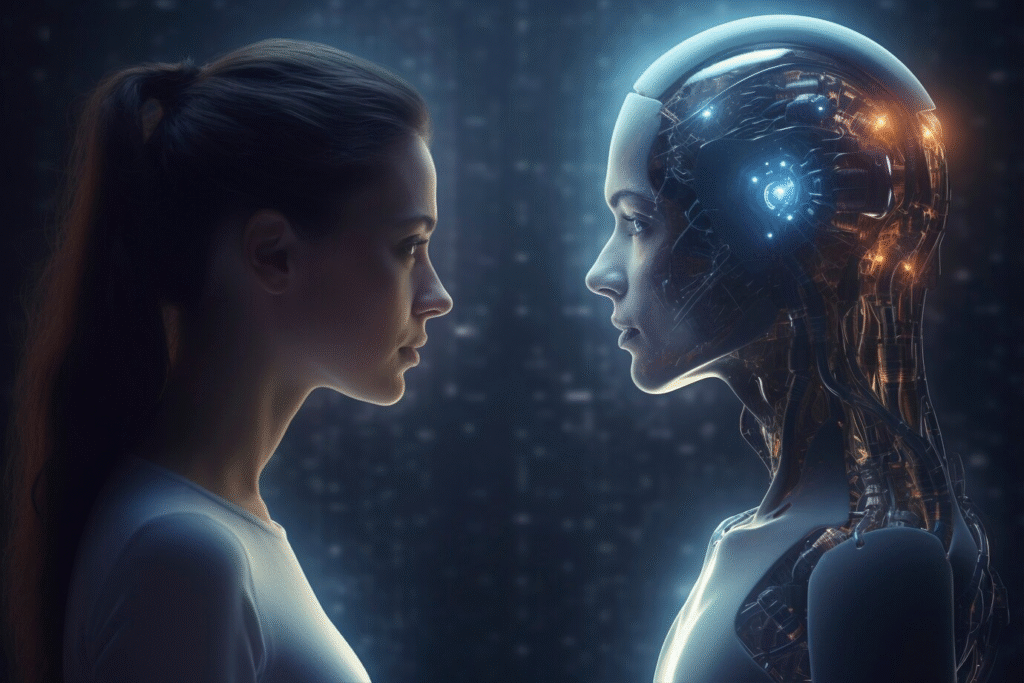The futuristic idea of artificial intelligence (AI) is no longer limited to academic circles or science fiction books. It is currently a transformative force that is changing economies, society, and industries at a rate never seen before. AI applications are becoming ingrained in many aspects of our daily life, from financial predictions and healthcare diagnostics to driverless cars and tailored advertising. The rapid advancement of technology is also changing the nature of work, opening up a plethora of options for anyone with the appropriate abilities and attitude. This article examines the major professions propelling the AI revolution and how professionals can get ready to lead this fast-paced shift.
AI and Machine Learning Experts: The Intelligence Architects
Experts who create, develop, and improve the algorithms that allow machines to learn from data and make decisions, known as AI and machine learning (ML) specialists, are at the core of the AI revolution. These experts play a key role in creating the models that underpin fraud detection software and recommendation systems alike. A strong background in mathematics, computer science, and data analytics is necessary for their positions, as is fluency in programming languages like Python or R. AI and ML experts are in high demand as businesses continue to gather and examine enormous datasets. Businesses from a variety of sectors are investing in people who can develop flexible systems that provide them a competitive edge. For analytical thinkers who are enthusiastic about creativity and problem-solving, this is the perfect career path.
Data Analysts and Scientists: Deciphering the Data Language
Large volumes of data are produced by AI systems, but deciphering them requires the expertise of data scientists and analysts. These experts serve as a link between unprocessed data and useful insights. To find patterns, trends, and correlations that help guide strategic decisions, they clean, process, and analyze data. Data scientists who are ready to explore various AI jobs are essential to the optimization of operations and forecasting of future results in industries including healthcare, finance, marketing, and manufacturing. Data professionals can now handle more complicated datasets and conduct more complex analyses thanks to AI tools that are expanding their capabilities. In order to draw insightful inferences from data, those entering this sector benefit from interdisciplinary knowledge that combines computer science, statistics, and domain-specific experience.
Experts in AI Ethics and Policy: Leading Conscientious Innovation
Ethical issues and legal frameworks are becoming increasingly important as AI gets more integrated into society. Making sure that the creation and application of AI technologies are in line with legal requirements and societal values is the main goal of careers in AI ethics and policy. These experts tackle important issues pertaining to accountability, transparency, prejudice, and privacy. Their research has an impact on the development and application of AI systems, especially in delicate fields like criminal justice, employment procedures, and facial recognition.
Designers of Human-AI Interactions: Improving User Experience
The field of designing human-AI interactions is another new profession influenced by AI. These experts concentrate on developing user-friendly interfaces and experiences that let people communicate with intelligent devices in an efficient manner. Their expertise guarantees that AI applications are accessible, engaging, and easy to use, from virtual reality environments to customer service chatbots and voice assistants like Siri and Alexa. In order to better integrate AI and understand human behavior, this field integrates aspects of computer science, psychology, and design.
AI-Powered Medical Practitioners: Revolutionizing Patient Care
By increasing diagnostic precision, forecasting patient outcomes, and customizing treatment regimens, artificial intelligence is transforming the healthcare industry. Because of this, professions in healthcare and medicine are changing to use AI tools in their daily work. For instance, radiologists increasingly collaborate with AI technologies that help identify anomalies in imaging data. In a similar manner, genetic counselors evaluate genomic data and forecast disease risks using AI. Therefore, in order to remain relevant, healthcare personnel need to become digitally literate and receptive to lifelong learning.
Adaptability, lifelong learning, and a readiness to use technology in creative and smart ways are essential for both individuals and businesses to succeed in this AI-powered future. The finest people to lead and influence the future as we advance into the era of intelligent systems will be those who welcome the changes.





